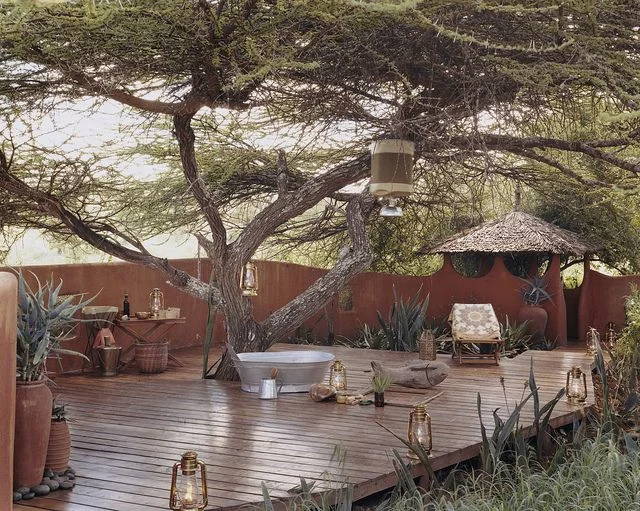Transform your backyard into the ultimate entertainment setting by adding a deck to the exterior of your property. A well constructed deck assembled from top quality material will add value to your property, whilst creating a comfortable outdoor space to entertain in.
We're not going to lie, building a deck is a big job, so it's best to tick off the following questions from your checklist.
- Have you set a reasonable budget to cover all the costs involved?
- Are you willing to do the required annual repairs and maintenance?
- Have you decided on the look you are after? This will determine the suitable decking material to use.
- Can you execute this project on your own or do you need to hire a professional?
Once you've considered these important points, your next task is to find the right decking materials for this project.
Wood
One of the most favoured decking material is wood, as it's quality and longevity becomes a lifetime investment. Alongside it's durability, timbre offers a sophisticated and authentic look, transforming a modest background into a luxurious outdoor setting. One thing to consider with timber is the upkeep, as wooden decks require regular maintenance in order to preserve it's natural beauty. Over time natural elements will weather timber, so it is recommended that wood decks are sealed and stained every three years.
Redwood
Redwood timber is seen to have a rich, warm, reddish-brown colour, creating a natural look for your deck. Redwood timber is strong and stable in nature, thereby decreasing chances of shrinking, warping and splintering. Given that Redwood contains minimal resins and preservatives, it retains it's finishes, and repels moisture and environmental forces. While it's lifespan is impressive, Redwood decking is an expensive option and is recommended to be resealed every 3-4 years.
Cedar wood
Cedar wood is the most natural type of timber and just like Redwood, it repels moisture and is resistant to rotting and insects. Cedar wood is classified as a soft wood and is less durable than a hardwood alternative, making it prone to splinter.
To retain a rich, earthy colour, cedar wood should be resealed every 1-2 years.
Pressure Treated Wood
Pressure treated lumber refers to wood that has been infused with chemical preservatives, making it resistant to rotting, insect infestations and environmental conditionals . With these added preservatives, pressure treated wood has an increased lifespan of up to 20 years, proving great value for money.
Pressure treated wood is an affordable option for wooden decks, however cheaper timbres are often at a lesser grade and susceptible to shrinking, warping and twisting. For this reason, it is best to look for premium pressure treated wood that is treated for water repellents and pre-stained.
Composite
Made from recycled plastics and wood fibres, Composite is an excellent replacement for natural wood. Composite decking is both water and stain resistant and lightweight, presenting a low maintenance option in terms of upkeep.
Synthetic (PVC)
If you are on the lookout for a cost-effective type of outdoor decking, synthetic or PVC made material will do an excellent job because this type of decking is very affordable, easy to clean, scratch and stain resistant and durable. Not to mention, synthetic material is lightweight, making construction just that bit easier.
If you have a question about decking materials or other outdoor projects, leave a comment on our RenoGuide Forum.









